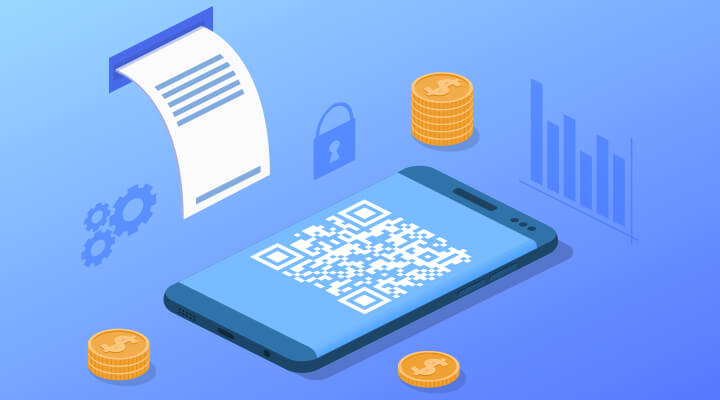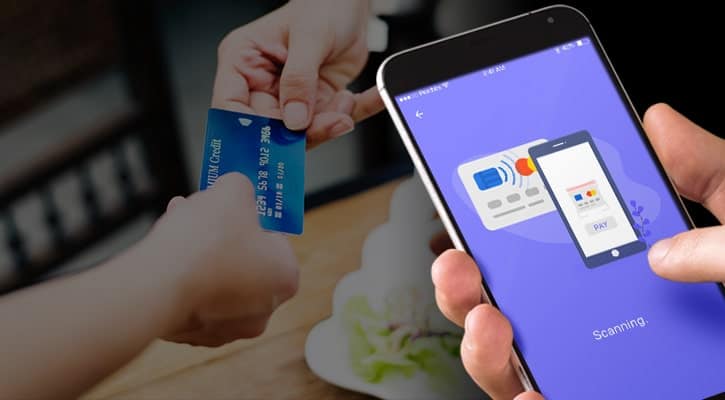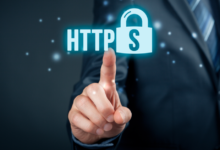Advanced Security, Rapid Customer Verification and the Future of digital payment
A brief guide on how to make digital payments secure

Digital payment grew a lot in the past few years. Customers have gradually shifted to cashless payment modes such as Unified payment secure Interface (UPI), mobile wallet, USSD, internet banking, and more. As we gravitate towards future of digital payment, it is necessary to understand the challenges that come along with them.
One of the biggest challenges of digital payments is security. In today’s tech-enabled world, strengthening the digital payments ecosystem is extremely important. On that note, let us look at why digital payment security has become mandatory and which tools can help you with it.
Importance of secure digital payments
Digital payments became a convenient choice for many customers. However, digital payments may also carry some hazardous security risks and data breaches, so customers need to take extra precautions to secure their payments. Here are the reasons that will show you why the security of digital payments is important:
1. Increase in customer trust
Despite a lot of developments in digital payments, some customers still prefer to pay with traditional payment modes. The reason behind this is the unawareness of customers regarding digital payment methods. They do not know how to use digital payment modes. Also, they do not have enough trust in digital payments because of some misconceptions.
However, strong payment security can help you gain customer trust. It helps in the conversion of the sceptical population to adopt digital payment solutions. Apart from this, you can educate your customers on the usage of digital payment modes.
2. Better prevention of frauds
The growth in digital payments has also brought some inevitable payment threats with it. Banking trojans, Phishing, Loan Frauds, Identity Thefts, OTP Scams, etc are some fraudulent activities that can harm your finances. But the adoption of digital payments can help the marginalised communities to be financially secure.
Now they are no longer dependent on cash transactions to fulfil their financial needs. Digital payment methods made it easier for the low-income group to be a part of financial inclusion.
3. Greater transparency
Cybersecurity can minimise technical glitches and failures into digital payments, ultimately optimising the time, cost, and labour spent on fixing the glitches. Secure payment systems can also trace each transaction easily, offering added security and making it harder for criminals to tamper with payment gateways.
4. Hassle-free payments
Digital payment methods have become so efficient that they can complete any transaction in a matter of minutes. To further enhance payment security and convenience, biometric security and digital identities have helped boosting payment securities. Incorporating cutting-edge technologies to strengthen the payment infrastructure will help create a digital payments ecosystem that is seamless and secure.
So these are the reasons that show you why the security of digital payment secure is essential. Now, let us look at some exceptional payment security methods.
7 mind-blowing digital payment security methods
As we move towards becoming a cashless economy, issues over the security of digital payment will increase. So, the best thing consumers can do today is to ensure that they take meticulous steps in preventing the theft or loss of their payment data. Here are some ways to ensure robust digital payment security:
-
Biometric Authentication in digital payment
Biometric Authentication is a verification method that involves the biological characteristics of a person. It includes fingerprint scanning, retina scan, facial recognition, vein mapping and heartbeat analysis.
Biometric Authentication makes customer identification fast, convenient, and secure. Along with this, a biometric payment system can save customers from remembering multiple passwords. Besides this, biometric payment technology has also made customer onboarding easier with quicker verification so that customers can start using banking facilities right away.

-
Digital Signatures
Businesses that send and receive automated payments heavily rely on digital signatures to protect their customers from fraudulent transactions. But what does this digital signature actually mean? As per Cryptomathic, Digital Signatures are a secure and legal way to use electronic signatures. Basically, there are three algorithms to authenticate digital signatures:
- Key generating algorithm:
It chooses a private key and a corresponding public key.
- Signing algorithm:
It produces the digital signature from the message and the private key.
- Signature verification algorithm:
It uses the public key, message and digital signature to confirm the authenticity.
With the expansion of the banking landscape at an international level, the financial community needs to work together to develop high-security protocols that enable businesses to make and receive payments and transactions more secure.
-
Smart Speaker Payments
Smart speakers enable the users to give vocal commands to a speaker and get a response in return. The users can give commands to get weather updates, traffic updates, or they can command the speakers to book a cab or food.
After witnessing a great potential in smart speakers, many tech giants have invested in its manufacturing. Amazon was the first one to launch smart speakers in the year 2014. Google Home and Apple launched their smart speakers in 2016 and 2017, respectively.
Previously, smart speakers were limited to just phone devices. However, with the growth of home automation, smart speakers will soon be the future of digital payments.
-
Blockchain
Blockchain is a special type of database that stores information in the chained blocks. It was first invented in 1991 by W. Scott Stornetta and Stuart Haber.
Furthermore, Blockchain is decentralised as it can transparently view all transactions having a personal node. By using blockchain explorers, anyone can track their transactions in real-time. Every node has its own copy of the chain that gets updated as fresh blocks so that you can easily track Bitcoin.
-
One-Time Passwords
One-Time Password or OTP is a mechanism used to log in to a network or service using a unique password for a single time. OTP can help you prevent identity thefts by ensuring that one cannot use a password for a second time. It provides stronger protection to online banking, corporates, FinTech giants and other systems that contain sensitive data.
Customers can use an OTP through mobile payment apps, SMS, or via a proprietary token. There are a variety of industry-standard algorithms, such as SHA-1, that generate OTP.
-
Tokenization
Tokenization makes it easier for payment businesses to improve their payment security and provide their customers with a hassle-free payment process. It can easily authenticate the customer without affecting the transaction security.
Tokenization uses a random string of characters which are called ‘Tokens’ that replaces sensitive payment data with an unrelated value of a similar type. So when someone tries to hack the system, he will get the blank tokens instead of Future payment information.
Tokenized data is hard to decipher due to the lack of mathematical relationship between the token and original number so the tokens cannot get returned to their original form.
-
POS Systems
Card payments are at high risk of fraud compared to other payment instruments because of duplication of card details and PIN. But thanks to the advanced POS systems, now you do not have to carry a lot of cards with you to make payment.
PoS(Point of Sale) is a location or segment where a sale happens. For a long time, PoS terminals used to be the checkout counters in malls and stores. But with digitization and the increasing popularity of other online payment methods, new PoS methods have emerged, such as a contactless reader.
Wrapping Up
The digital payment wave will not stop even in the future. With financial literacy and financial accessibility, online payments are going to grow exponentially. As a payment service provider, this is the right time for you to onboard the digital payment wagon and enable your customers to transact securely.
Hope we have provided you with enough information on digital payment security. Still, if you want to know more, then you can reach us out at any time.



